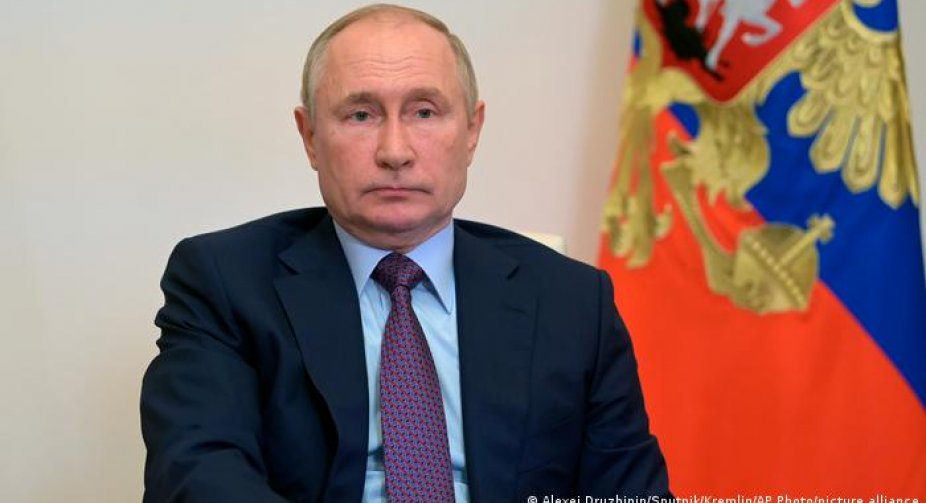"Putin remaining in power, or even a managed transfer of power, would lead Russia to Cold War-style isolation. There is a real danger for the Russian people of turning the country into a larger version of North Korea. It is becoming increasingly clear that Vladimir Putin has become the greatest existential threat to Russia. This opinion was expressed by John R. Bryson, professor of entrepreneurship and economic geography at the Birmingham Business School, to FRONT NEWS Ukraine.
There are several contradictory versions regarding Russia's Ukrainian war. On the one hand, Dmitry Peskov, President Vladimir Putin's press secretary, repeats the mantra that Russia will consider using nuclear weapons against what Moscow defines as an "existential threat.
On the other hand, President Joe Biden said that Putin "cannot stay in power." In his statement, Biden expressed "moral indignation" at Putin's actions in Ukraine. There is no doubt that Putin's popularity in Russia cannot last, and that there will eventually emerge a successor who may come as the result of a Maidan-style popular revolution, which is unlikely, a palace coup, which is becoming increasingly likely given Putin's continued failures in Ukraine, or a managed transfer of power.
A Putin remaining in power, or even a managed transfer of power, would lead Russia to Cold War-style isolation. There is a real danger for the Russian people that the country will turn into a larger version of North Korea. It is becoming increasingly clear that Vladimir Putin has become the greatest existential threat to Russia, and that Joe Biden was right to believe that Putin cannot remain in power for the good of the Russian people. There are four points to consider here.
First, Putin has lost all credibility and suffered serious reputational damage, given the humanitarian crisis he created in Ukraine. This reputational damage is related to the failures of the Russian military, highlighting serious problems with equipment, training, leadership and strategy. All of this underscores great weakness rather than a projection of strength. There is no doubt that Putin has failed, and the extent of this failure calls into question his ability to continue making informed decisions that reflect the interests of the Russian people.
Second, the government's first duty is to ensure the security of its citizens and the country, including military and economic security. There was no military or economic threat to Russia from Ukraine. All Putin's special operation has done is undermine the military and economic security of the Russian people. This undermining has a deleterious effect on daily life in Russia, and this effect will increase. The sanctions imposed on Russia in response to Putin's Ukrainian operation are the direct result of Putin's failure to represent the long-term interests of the Russian people. The Russian people will gain nothing from the seizure of Ukrainian territory. Thus, Putin has provoked an unnecessary act of military aggression that undermines Russia's credibility in international affairs and destroys the daily life chances of Russian citizens.
Third, one of the results of Putin's Ukrainian conflict has been that it has destroyed the trust that had developed between Russian business circles and the global financial system. One of the consequences has been that Western business circles are refusing any involvement in the Russian economy. The most important issue is Putin's decision to pass a law allowing the country's airlines to enter aircraft leased from foreign companies into Russia's aircraft registry. Russian airlines have leased 515 aircraft abroad. Putin's new law allowed these planes to continue flying in Russia, but it will lead to serious contract disputes. The owners of the planes continue to try to get their planes and engines back.
Nevertheless, Putin's illegal actions will result in $10 billion in insurance payments to leasing companies, and Russia will be excluded from the global aircraft leasing industry.
Fourth, the Kremlin has a proven reputation for saying one thing and doing another. Any statement by the Kremlin should be accompanied by a bucket rather than a pinch of salt. In January 1994, for example, Russia signed a trilateral agreement with Ukraine and the United States in which Ukraine agreed to send its nuclear warheads to Russia for dismantlement in exchange for Russia's commitment to respect existing borders. This agreement proved futile.
Any outcome of the Ukrainian conflict would result in long-term damage to Russia, which would continue to undermine the military and economic security of the Russian people.
The key question concerns the reduction or elimination of sanctions. The most important question is "how will the credibility of any business, economic, or political dealings involving Russia be restored?" Putin is unable to repair the reputational damage he has done to himself and the Russian people. The paradox is that Putin has become the greatest existential threat to Russia.
There are many different avenues open to Putin. He could cease all hostilities in Ukraine and withdraw from the territory, respecting the border that existed before his special operation. This is unlikely. He could continue to fight and even possibly eventually use chemical and nuclear weapons, and this is more likely. Alternatively, he could admit that he has become a big liability to Russia and start facilitating a managed transfer of power, but this is also unlikely.
The problem for the Russian people is that it is much easier to deploy nuclear weapons against some perceived existential threat to the Russian nation, but impossible to develop a quick and effective solution against Russia's greatest existential threat, Vladimir Putin. The key problem facing the Russian people is "how to solve a problem like Putin?" For most Russians, Putin is more of a hero than a threat. Nevertheless, the first step toward solving the Putin problem is for the Russian people to recognize that his continued leadership poses an existential threat to the Russian nation.
